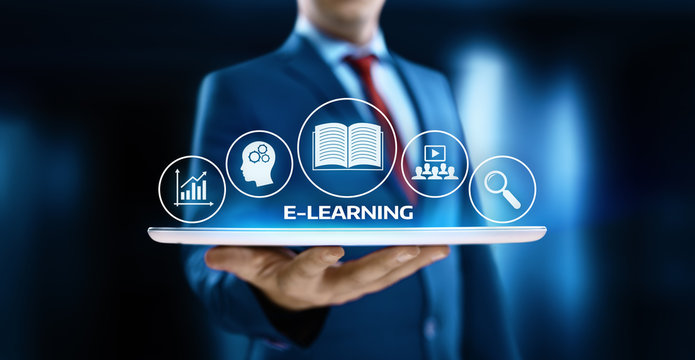The Growing Demand for Multilingual Content in E-Learning Platforms
The world of education is undergoing a digital revolution. As e-learning platforms proliferate across the globe, the demand for multilingual content has reached unprecedented levels. In 2025, education is no longer confined to physical classrooms or a single language. Students from diverse linguistic and cultural backgrounds can now access knowledge anytime, anywhere. However, for e-learning platforms to achieve their full potential and meet the needs of a global audience, delivering content in multiple languages is no longer a luxury—it’s a necessity.
Professional translators play a pivotal role in making e-learning materials accessible, accurate, and culturally relevant.
The Rise of E-Learning and the Multilingual Revolution
E-learning has grown exponentially in recent years. From corporate training and university courses to personal development and online certifications, e-learning platforms are catering to learners of all ages and professions.
According to recent studies, the global e-learning market is projected to surpass $400 billion by 2027. But with this growth comes a critical challenge: addressing the linguistic and cultural diversity of learners worldwide.
The multilingual revolution in e-learning is fueled by several factors:
- Globalization of Education: Students and professionals seek educational resources beyond their native countries. Multilingual content ensures inclusivity for learners in non-English-speaking regions.
- Advancements in Technology: AI-powered platforms and virtual classrooms have made it easier to deliver localized learning experiences.
- Growing Internet Penetration: With more people online than ever before, especially in developing regions, demand for e-learning content in native languages has surged.
- Corporate Learning Needs: Companies with global workforces require multilingual training materials to upskill employees across regions.
While these advancements have made education more accessible, they also underscore the critical need for high-quality translations that ensure learning materials are effective and culturally appropriate.
The Importance of Multilingual Content in E-Learning
Why is multilingual content so essential in e-learning? Because language is at the heart of understanding. Imagine a student in rural India attempting to grasp a complex concept in English, or a healthcare professional in Brazil relying on training materials that don’t align with local medical terminology. The lack of localized content can hinder comprehension, reduce engagement, and limit the effectiveness of the learning experience.
Multilingual content ensures that:
- Learning is Inclusive: Everyone, regardless of their linguistic background, has access to education.
- Concepts Are Understood Clearly: Learners grasp subject matter more effectively when presented in their native language.
- Cultural Relevance Is Maintained: Translating and localizing content ensures it aligns with the cultural norms and values of the target audience.
- Learner Engagement Improves: Students are more likely to stay motivated when learning materials resonate with their language and cultural identity.
Ultimately, multilingual content bridges the gap between global education initiatives and the diverse needs of learners.
The Role of Professional Translators in E-Learning
The task of creating multilingual e-learning content is not as simple as plugging text into a machine translation tool. Translating educational material requires expertise, precision, and an understanding of both linguistic and cultural nuances. Professional translators bring the human touch that ensures translated content is not just accurate, but also meaningful to the learner.
At Fradelia, we recognize the unique challenges of translating educational content, and we bring the following expertise to the table:
- Subject Matter Expertise: We work with translators who have experience in specific fields like STEM, healthcare, business, and the arts, ensuring technical terms and concepts are accurately conveyed.
- Cultural Localization: Our certified translators adapt content to suit cultural norms, idiomatic expressions, and regional preferences. This ensures learners connect with the material on a deeper level.
- Pedagogical Sensitivity: Translating educational materials requires an understanding of teaching methodologies and learning outcomes. We ensure that the structure, tone, and objectives of the original content are preserved.
- Consistency Across Formats: Whether it’s video subtitles, e-books, quizzes, or interactive elements, we ensure seamless translation across all e-learning formats.
Our goal is to deliver translations that feel natural, intuitive, and engaging, allowing learners to focus on the material without being distracted by awkward phrasing or cultural missteps.
Challenges in Translating E-Learning Content
Creating multilingual e-learning content is not without its challenges. Here are some of the most common obstacles and how professional translators overcome them:
- Technical Terminology: Educational materials often contain jargon that can be difficult to translate. Our translators specialize in industry-specific content to ensure precision.
- Cultural Differences: What works in one culture might not resonate in another. We carefully localize content to respect cultural norms while maintaining educational intent.
- Interactive Elements: E-learning platforms often include quizzes, games, and multimedia elements. Translating these requires a blend of technical and linguistic expertise to ensure usability and accuracy.
- Time and Budget Constraints: Multilingual projects can be time-intensive, especially for large platforms. Our efficient processes and advanced tools help streamline workflows without compromising quality.
By addressing these challenges head-on, professionals ensure that e-learning platforms can deliver world-class education to audiences around the globe.
Emerging Trends in Multilingual E-Learning
As we look to the future, several trends are shaping the demand for multilingual content in e-learning:
- AI-Assisted Translation and Localization: While AI tools have advanced significantly, they still require human oversight to ensure accuracy and cultural relevance.
- Gamification in E-Learning: Interactive games and quizzes are becoming a staple of online learning. Translating these elements requires both creativity and technical expertise.
- Voice-Over and Subtitling Services: With video content dominating e-learning platforms, the demand for multilingual voiceovers and subtitles is skyrocketing.
- Regional Focus: Platforms are increasingly creating content tailored to specific regions, necessitating highly localized translations.
These trends highlight the growing need for skilled translators who can navigate the complexities of e-learning content.
Fradelia: Your Partner in Multilingual E-Learning Solutions
At Fradelia, we specialize in providing high-quality translation and localization services for e-learning platforms. Our team of professional linguists has years of experience in translating educational content, ensuring that your learning materials are:
- Accurate and Reliable: We maintain the integrity of your original content while adapting it to the target language.
- Culturally Relevant: Our localized translations resonate with diverse audiences, fostering engagement and understanding.
- Accessible Across Formats: From text and graphics to audio and video, we deliver seamless multilingual solutions across all e-learning platforms.
Whether you’re an educational institution, a corporate training provider, or an e-learning startup, we are here to help you expand your reach and make education accessible to everyone. With us, you can rest assured that your learning materials are in the best hands.


